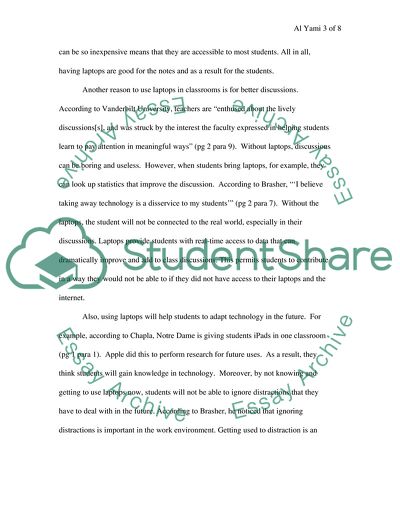Cite this document
(Should Universities Ban Laptops During Classes Research Paper, n.d.)
Should Universities Ban Laptops During Classes Research Paper. https://studentshare.org/education/1746450-argumentam-i-agree-or-dis-agree-for-using-laptops-at-the-universities-classes
Should Universities Ban Laptops During Classes Research Paper. https://studentshare.org/education/1746450-argumentam-i-agree-or-dis-agree-for-using-laptops-at-the-universities-classes
(Should Universities Ban Laptops During Classes Research Paper)
Should Universities Ban Laptops During Classes Research Paper. https://studentshare.org/education/1746450-argumentam-i-agree-or-dis-agree-for-using-laptops-at-the-universities-classes.
Should Universities Ban Laptops During Classes Research Paper. https://studentshare.org/education/1746450-argumentam-i-agree-or-dis-agree-for-using-laptops-at-the-universities-classes.
“Should Universities Ban Laptops During Classes Research Paper”. https://studentshare.org/education/1746450-argumentam-i-agree-or-dis-agree-for-using-laptops-at-the-universities-classes.


